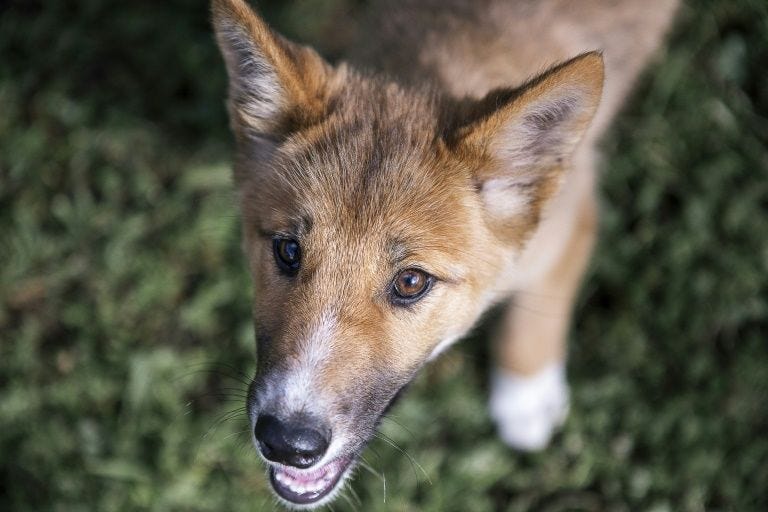Welcome to Thursday Things! Sign up below to get Thursday Things delivered to your inbox each week.
So nothing about lions this issue? Seriously? Photo by Austin Neill on Unsplash
First, some good news from the world of science. A new Crispr technique could fix almost all genetic diseases. We’ve discussed Crispr before here at Thursday Things (short version: an amazing new technology for precisely editing DNA). Like anything new, Crispr itself can be improved to become a more powerful tool. Researchers at the Broad Institute have developed a new Crispr technique called “prime editing” that “can for the first time make virtually any alteration—additions, deletions, swapping any single letter for any other—without severing the DNA double helix.” Not severing the double helix is the big advance here, because it eliminates many of the errors that can occur when editing genes with “Crispr classic.” The headline of “fixing all genetic diseases” overstates things a bit (as headlines do). We still have to figure out what edits to make, and some genetic disorders arise from multiple errors in multiple genes. But “prime editing” is definitely an exciting step in the right direction.
One million cannibal ants trapped in a Soviet nuclear bunker have escaped. The headline is much more sensational than the actual story. But the headline is great! Ants fell into an old nuclear bunker and were unable to escape. The trapped colony survived for years by eating their own dead. The trapped ants were all workers, unable to reproduce, but the colony’s numbers were renewed by new ants falling in on a regular basis. Scientists eventually provided the ants with an escape route, just to see what would happen. (Because, obviously, you don’t want to leave one million cannibal ants trapped in a Soviet nuclear bunker. No! You want to release them into the outside world. Silly scientists.) An article in the Journal of Hymenoptera Research has all the gory details. I’ll just assume you’re a subscriber.
Sticking with our animal theme — Australian raptors have discovered fire. Three different species (black kite, whistling kite, and brown falcon, for those keeping score at home) in the Australian bush have been observed picking up burning sticks and carrying them to unburnt areas of grassland to start new fires that will flush out delicious prey. The locals have apparently known about this forever: “Australian Aboriginal lore is replete with references to birds carrying fire, and some traditional ceremonies even depict the behaviour.” But scientists are fascinated and say this is the first example they know of non-human animals controlling fire for their own purposes. It’s a cute story … until the falcons discover gunpowder. Then we’re in trouble.
Australian falcons may be firebugs (or firebirds, I suppose) but, meanwhile, in the USA, a hungry herd of 500 goats has helped save the Ronald Reagan Presidential Library from the California wildfires. The goats have been on the payroll since May, hired to “clear flammable scrub surrounding the complex as a preventative measure.” The resulting fire break slowed the flames and gave firefighters the time they needed to save the library. Good job, goats!
And now some news from the world of squirrels. As if squirrels don’t have enough problems, in South Korea: Humans Are Gobbling Up Acorns, Driving Squirrels Nuts. Acorn noodles have become very popular in South Korea in recent years, leading humans to forage for massive quantities of acorns, depriving squirrels of their primary food source: as “human foraging has multiplied, there are now fewer acorns on the ground, and the squirrel population has dwindled.” South Korea’s squirrel population has declined around 30% over the past decade, it is reported, and experts believe all the squirrels will be gone within fifty years if humans keep stealing their acorns.
But fear not! The Acorn Rangers are on the job. I love this: concerned squirrel lovers patrol the forests, parks, and college campuses to intercept and educate acorn thieves and urge them to put the acorns back for the squirrels:
“Humans can choose from thousands of different foods, but the squirrels only have acorns,” said Sa Sin-won, the founder of Acorn Rangers, which as volunteers have no legal authority to punish culprits.
The Acorn Rangers are dedicated, but their hard work pays off for the squirrels:
The activists spend an hour every week hiding the acorns, by hand, back under tree leaves. A windy day can nullify their work.
The work is far from thankless, says Mr. Sa, the Acorn Rangers founder. The ultimate payoff comes when they see a squirrel climb down a tree and collect a returned acorn. To date, Mr. Sa says, he’s seen it happen once.
See? Squirrels and people can live together in peace after all. I feel this would make an excellent children’s book or animated series.
Finally, we return to Australia to see what those crafty raptors have been up to and — Great heavens, a raptor stole my baby dingo!

A mean bird tried to eat me! (AFP Photo/Shari TRIMBLE)
This adorable pup was found trembling and whimpering in a backyard in Victoria, Australia, with talon marks on his back. At first believed to be a dog or fox, Wandi (as they named him) turned out to be a 100% purebred dingo, apparently carried off by a hungry raptor (no word on whether arson was involved). His arrival from the heavens was a godsend for dingo conservation:
Australian Dingo Foundation director Lyn Watson said that when Wandi "fell out of the sky" it was an "answer to a prayer" -- he can now join 40 other dingoes in a breeding program at the charity's sanctuary.
"When we sent his DNA off we were hoping that he would be of high content, but we were pleasantly surprised to find he was as much dingo as you could get," she told AFP.
I love a happy ending. Best of luck to Wandi in his new home.
Thank you for reading Thursday Things! If you’re not a subscriber, please sign up with the button below to get future issues delivered to your inbox. You can also forward Thursday Things to a friend, and I hope you will. See you next Thursday!



